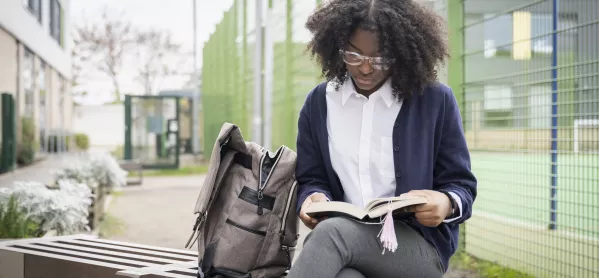Secondary pupils have continued to face learning loss in reading since summer 2021, a new report published today by the Department for Education reveals.
The findings have created a “concerning” picture of the performance of secondary pupils since schools reopened.
The report, which presents recent findings on learning loss and recovery, was based on research by the Education Policy Institute think tank and education software firm Renaissance Learning.
It shows the extent of pandemic learning loss among pupils in England during the first half of the recent autumn term (2021-22).
The research used Star assessments - computer assessments that adapt to the individual - that identify gaps in learning.
Picture of secondary reading ‘concerning’
The new report says that reading learning loss continued to increase for secondary pupils between the 2021-22 summer and autumn terms, rising from 1.8 months to 2.4 respectively.
In some areas, pupils lost over three months’ progress in reading.
Jon Andrews, report author and head of analysis at the EPI, said the performance of secondary-aged pupils since summer was ”particularly concerning”.
Mr Andrews explained that the group was “far from showing signs of recovery” and, even more concerningly, “appear to be showing a greater degree of learning loss than they did at the end of the last school year.”
And by autumn, the gap in learning loss between disadvantaged pupils at secondary was around 1.5 months.
Improvements at primary, but disadvantage gap widens in reading
Primary-school pupils did not fall further behind during last term, with their reading levels similar to the summer term of 2021, but with some progress made.
The gap decreased from 0.9 to 0.8 months in reading.
Despite this promising trend, the disadvantage gap for primary pupils’ reading has widened to 0.9 months when compared with their peers.
But the disadvantage gap for primary pupils in maths had narrowed by last term, with poorer pupils making up for more lost learning than their wealthier peers (0.6 months’ progress compared with 0.3).
Greatest learning losses in the northern regions
The research also found that the North East experienced the greatest learning loss by pupils at 1.3 months, followed closely by the North West (1.2 months) and Yorkshire and the Humber (1.1 months).
Southern regions fared better, with pupils in the South West and London both suffering from 0.3 months of lost learning.
These regions also saw the greatest learning losses in secondary school reading.
In the North West, 3.2 months were lost, in the North East 3.1 months, and Yorkshire and the Humber 3.0 months.
The report also found that in both primary and secondary reading, non-disadvantaged pupils in areas with higher levels of deprivation experienced a similar degree of learning loss to disadvantaged pupils in areas with low levels of deprivation.
Concerns over summer exams
Reacting to today’s report, Paul Whiteman, general secretary of the NAHT school leaders’ union, said that GCSE and A-level students hadn’t had a single normal year of their courses.
Mr Whiteman said that many schools are still finishing the teaching of exam specifications, with time “getting very tight” for teacher-led revision sessions or exam preparation work.
“Many students and teachers feel more could be done to allow for this disruption,” he added.
Last week, government data revealed that pupil absences had tripled in two weeks, leading to concerns about further disruption.





